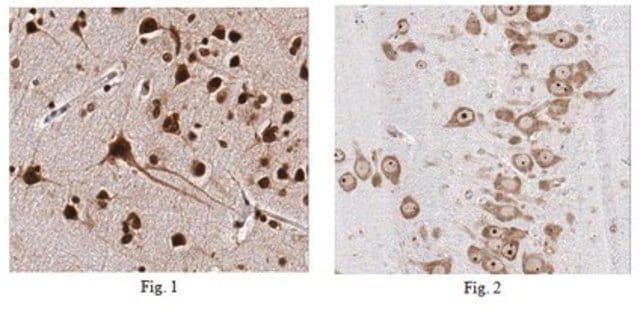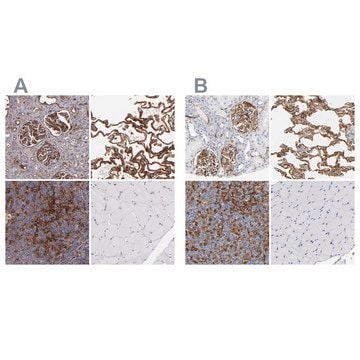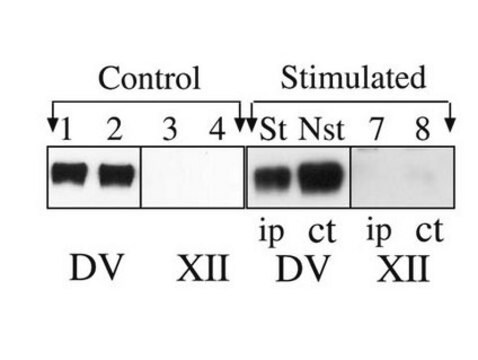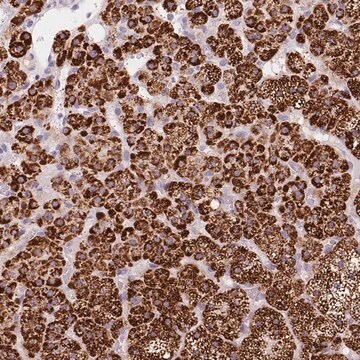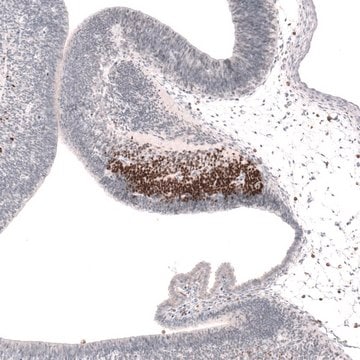MAB5270
Anti-Choline Acetyltransferase Antibody, clone 1.B3.9B3
clone 1.B3.9B3, Chemicon®, from mouse
Synonym(s):
ChAT
About This Item
Recommended Products
biological source
mouse
Quality Level
antibody form
purified immunoglobulin
antibody product type
primary antibodies
clone
1.B3.9B3, monoclonal
species reactivity
human, rat, pig
manufacturer/tradename
Chemicon®
technique(s)
ELISA: suitable
immunohistochemistry (formalin-fixed, paraffin-embedded sections): suitable
western blot: suitable
isotype
IgG1
NCBI accession no.
UniProt accession no.
shipped in
wet ice
target post-translational modification
unmodified
Gene Information
human ... CHAT(1103)
pig ... Chat(396896)
rat ... Chat(290567)
Specificity
Immunogen
Application
Neuroscience
Neurotransmitters & Receptors
ELISA
Immunohistochemistry: 10-20 μg/mL in paraffin embedded sections {See Ratcliffe et al. 1998}
Optimal working dilutions and protocols must be determined by end user.
Target description
Physical form
Storage and Stability
Analysis Note
Brain tissue
Other Notes
Legal Information
Disclaimer
Not finding the right product?
Try our Product Selector Tool.
Certificates of Analysis (COA)
Search for Certificates of Analysis (COA) by entering the products Lot/Batch Number. Lot and Batch Numbers can be found on a product’s label following the words ‘Lot’ or ‘Batch’.
Already Own This Product?
Find documentation for the products that you have recently purchased in the Document Library.
Our team of scientists has experience in all areas of research including Life Science, Material Science, Chemical Synthesis, Chromatography, Analytical and many others.
Contact Technical Service
